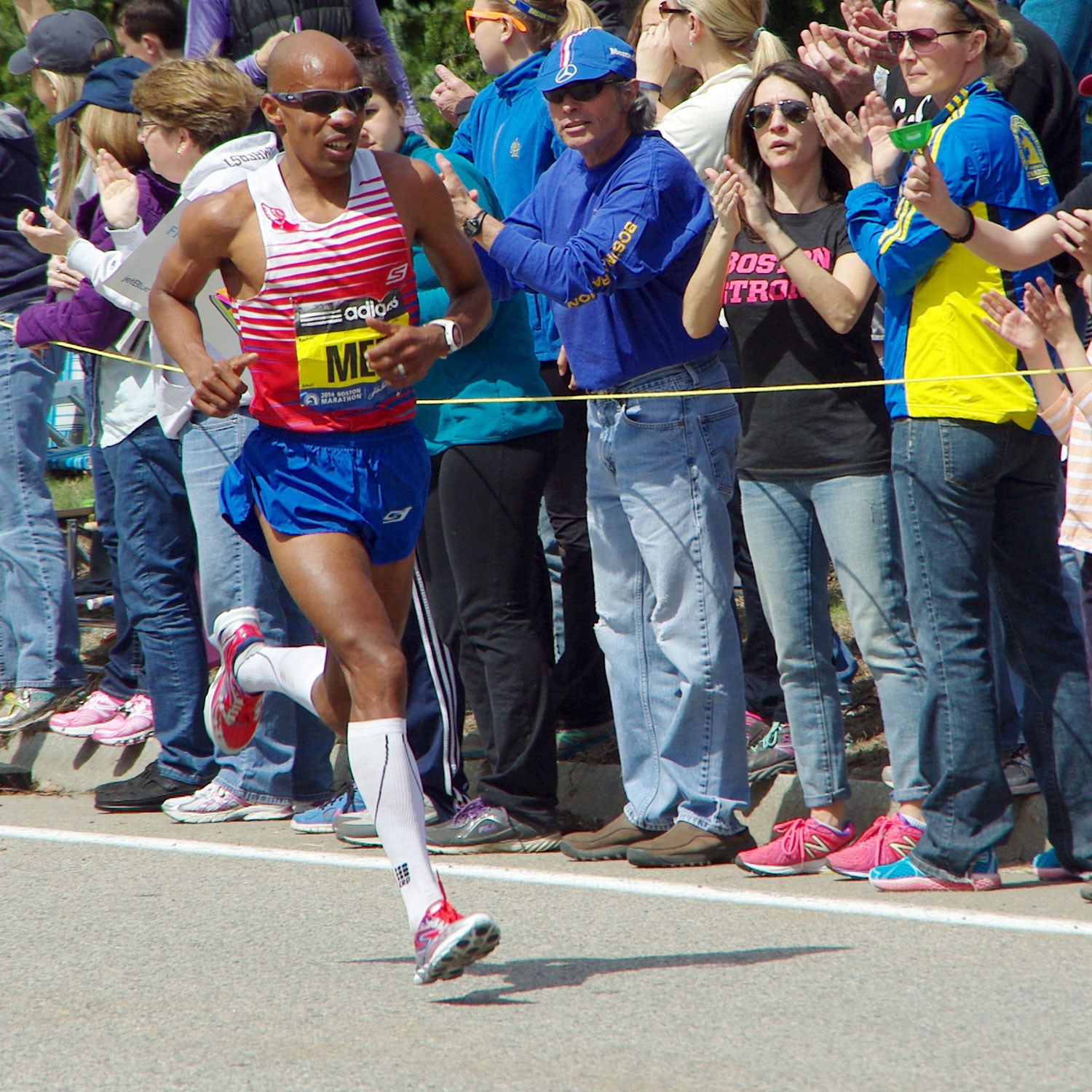In April, Meb Keflezighi, the affable 40-year-old who competes in Skechers and is arguably the best American marathoner, made an announcement on Twitter about his expanding waistline. After disclosing that his pre-Boston Marathon weight was 121.6 pounds, Meb informed followers that ten days after the race, with no running and no specific diet, his weight had shot up to 134 pounds.
This, apparently, was a wakeup call. As Meb wrote, “The scale, finishing line, and watch never lie. Now, the work towards race weight begins.” The fluctuation brings up one important question: is one's ideal weight to run a marathon (or 5K or 10K, etc.) actually one's ideal weight? Or, to put it another way, should we regard the pared-down bodies of professional runners with veneration and envy, or with something closer to concern?
For Matt Fitzgerald, a coach, triathlete and author of Racing Weight, it is ludicrous to suggest that elite endurance athletes are too thin for their own good. “If there’s a myth out there, the myth is not that elite runners are healthy. The myth is that they’re unhealthy,” Fitzgerald says. “You cannot win the Boston Marathon if you’re unhealthy, in any regard. Everything you need to be healthy, you actually need more of it to be a champion endurance athlete.”
There certainly is a limit to how much weight one can lose to perform at peak levels, but, as Hunter S. Thompson once said about motorcycle-riding and reaching “the edge,” “the only people who really know where it is are the ones who have gone over.” Those who have, according to Fitzgerald, are in the minority. “There is absolutely such a thing as ‘too light,’ but most recreational athletes never get down to what would be an optimal racing weight,” Fitzgerald says. “It’s functionally defined. It’s like overtraining. How much training is too much? Well, when it starts to make you slower.”
In Meb's case, his dramatic increase in poundage during a relatively brief period of inactivity is a testament to the intensity of his training. As Outside wrote in an article last year, on “rest days” Meb goes for a 10-mile run. When that is your norm, is it hardly surprising that even a week of no running will affect your physique far more drastically than a similar hiatus will affect a hobby jogger.
If certain professionals do walk that fine line between being at optimal and under-weight, there may be times when peanut gallery observations about top runners being “dangerously thin” are not entirely inaccurate. (Because of the demands of the sport, it is also fair to say that runners can be prone to developing eating disorders.) But when such comments are directed at the lead pack in a major marathon, they miss the point that to even be in contention to win a race like this, you have to be in phenomenally good shape.
At last month’s Boston Marathon, Meb finished second among American runners. The man who beat him was Dathan Ritzenhein, who, as his bio on USA Track & Field’s website reveals, is five-foot-eight and 117 pounds. In a 2010 New Yorker article, Jennifer Kahn describes Ritz’s physique as not “gaunt so much as taut, with legs that resemble those of a twelve-year-old girl: hairless, concave, knob-kneed, and so smoothly tan that they appear to be molded out of a soft, flesh-colored plastic.”
The year before this article was published, Ritzenhein broke the American 5,000 meter record. He remains one of the best runners in the U.S. and will be vying for his fourth trip to the Olympics at next year’s trials. If his body does resemble that of a prepubescent girl, it appears to be working well for him.


